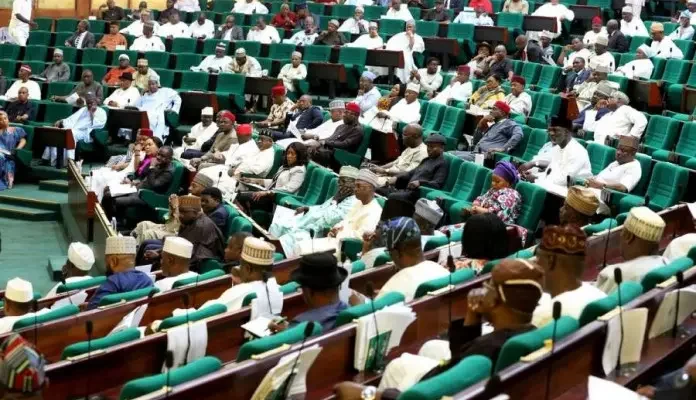801
By Tracy Moses
The Speaker of the House of Representatives, Rt. Hon. Tajudeen Abbas, has described Nigeria’s Compressed Natural Gas (CNG) initiative as a key element of the country’s clean energy strategy, with the capacity to offer a safer, greener, and more affordable fuel alternative to petrol, especially for the transport sector.
Abbas, who was represented by Hon. Sada Soli (Jibia/Kaita Federal Constituency, Katsina State) at a legislative investigative hearing on Thursday, stated that Nigeria’s abundant gas reserves make the adoption of CNG both logical and necessary to bolster energy security, stimulate economic diversification, and curb environmental pollution.
The hearing was organized by the House Ad-hoc Committee on the Implementation of the CNG Policy to scrutinize the rollout process, identify implementation gaps, and ensure the programme is aligned with core values of openness, public interest, and safety.
Highlighting the importance of the initiative, Abbas recalled that the Federal Government introduced the CNG policy following the removal of fuel subsidies, with the goal of slashing transport costs, enhancing air quality, and unlocking economic opportunities in the gas sector. However, he raised concerns about the sluggish implementation, infrastructure challenges, and safety concerns that have surfaced.
“As representatives of the Nigerian people, it is our duty to provide oversight on how this policy is unfolding. Are the allocated funds being properly utilized? Are Nigerians feeling the impact? Are health, safety, and environmental guidelines being met?” he asked.
The Speaker urged all stakeholders to participate in the probe with a sense of responsibility and national interest, stressing that the exercise was not aimed at witch-hunting, but at fostering solutions for a successful policy rollout.
Chairman of the Ad-hoc Committee, Hon. Jaha Ahmadu Usman, cautioned that despite its potential, the CNG programme could fail if urgent reforms, transparency, and proper monitoring are not instituted. He raised issues surrounding equitable access, safety protocols, and sustainability, and emphasized the need to assess the spread of conversion centres, adherence to global standards, and whether Nigeria’s legal framework is robust enough to support the initiative.
Usman revealed that the committee has requested comprehensive reports and data from key ministries and regulatory agencies, including the Ministries of Petroleum (Gas), Finance, Transportation, and Environment, as well as agencies like NMDPRA, NUPRC, FRSC, SON, NEITI, Customs, and the National Bureau of Statistics.
While upstream operators clarified they do not directly handle CNG distribution or infrastructure development, Usman called for coordinated efforts across the value chain to develop a sustainable local production model and ensure a nationwide rollout.
“If the programme is lagging, we must pinpoint the reasons and find practical solutions. If it is advancing, we must recognize and document the achievements,” he said.
Mr. Michael Oluwagbemi, Project Director of the Presidential CNG Initiative (PCNGi), reported significant progress, noting that the number of conversion centres has expanded from just seven to 300 across 24 states. He explained that the Initiative partners with multiple sectors to offer free vehicle conversions and stressed a zero-tolerance approach to corruption, revealing that two personnel were dismissed for misconduct. He urged for additional funding to scale operations and empower youth through training as the second phase of the programme commences.
Representing the Minister of State for Petroleum Resources (Gas), Permanent Secretary Mr. Vitalis Ibe, said the government is scaling up conversion infrastructure nationwide. He described the policy as both cost-effective and environmentally sustainable, and praised its growing public support.
Also addressing the lawmakers, Mr. Lekan Ogunleye, Executive Vice President (Gas) at the Nigerian National Petroleum Company Limited (NNPCL), lauded President Tinubu’s administration for revitalizing the long-stalled initiative. He said the NNPCL has appointed a dedicated liaison to coordinate with investors and revealed that key infrastructure is already operational. Ogunleye added that the company plans to offer Nigerians a 50 percent discount on vehicle conversions.
Major transport unions including the National Union of Road Transport Workers (NURTW) and the Road Transport Employers Association of Nigeria (RTEAN) threw their weight behind the policy, commending its efficiency and environmental safety. However, they urged the government to ensure that all regions benefit equitably from the scheme.
In its contribution, the Federal Road Safety Corps (FRSC) pledged unwavering support for the initiative, describing it as a smart, sustainable energy transition. Speaking on behalf of Corps Marshal Shehu Mohammed, Deputy Corps Marshal Abiodun Akinlade reassured the lawmakers that, with the proper protocols, CNG adoption poses no significant safety risks.
He noted that CNG is considerably safer than traditional fuels, as it has a higher ignition temperature and disperses quickly, reducing explosion risk during leaks. He added that the fuel also delivers major economic advantages, saving 40 to 60 percent in fuel costs, decreasing engine wear, and reducing breakdowns, all of which enhance road safety.
The FRSC has begun updating its inspection systems to include CNG-specific protocols, training officers in safety standards, and collaborating with relevant agencies to create clear technical guidelines. Plans are also in place to launch CNG inspection centres along major routes and integrate CNG modules into the Driving School Standardisation Programme (DSSP).
To entrench the policy, the Corps recommended legislative backing for the certification of conversion centres, provision of diagnostic tools and training, and the inclusion of CNG compliance in roadworthiness inspections nationwide.
“With effective legislation and collaboration among agencies, Nigeria can maintain road safety while shifting towards a cleaner and more resilient energy future,” Mohammed said.



